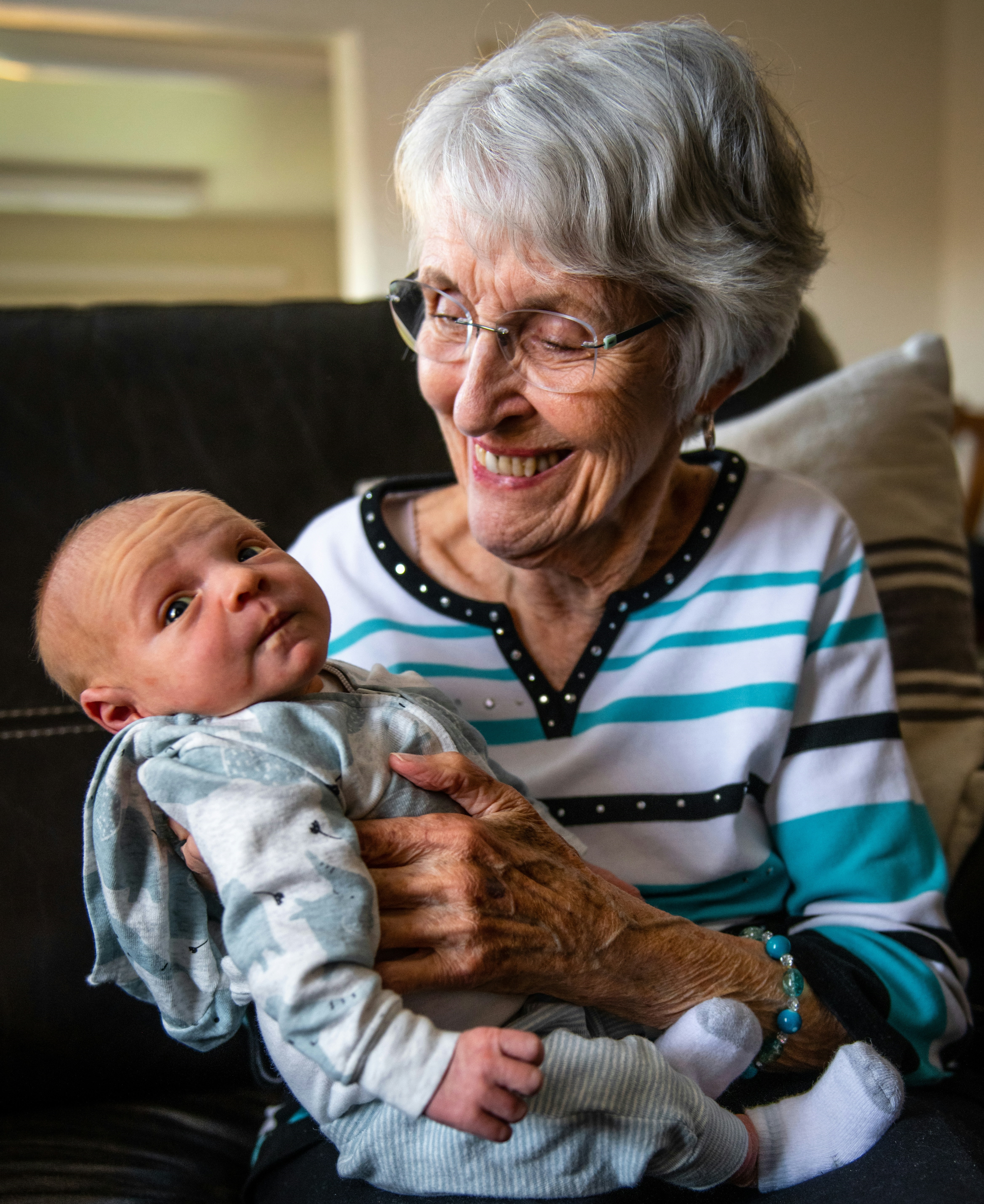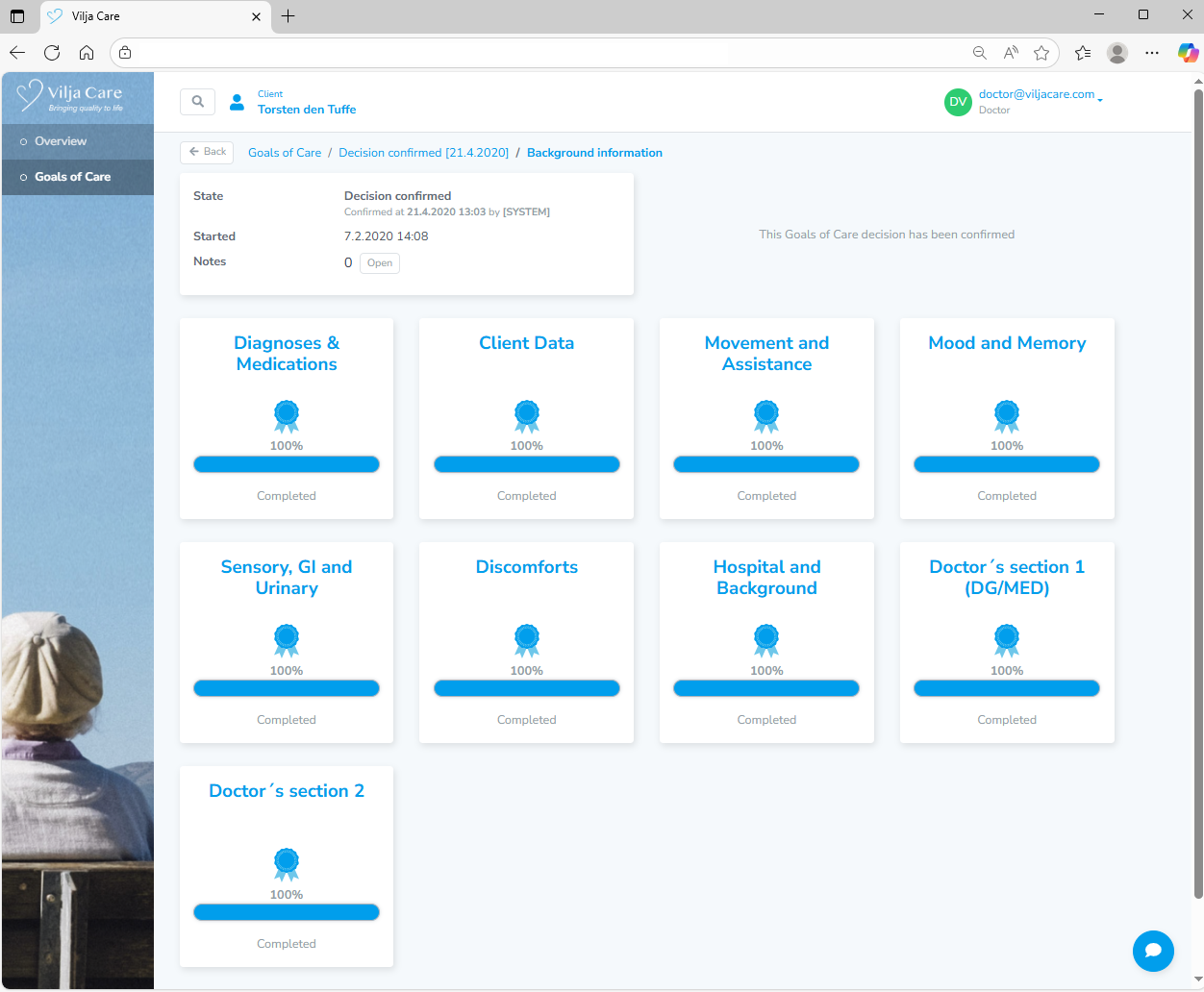Vilja, Advance Care Planning and Goals of Care
Vilja helps healthcare professionals with Advance Care Planning (ACP), ensuring that Goals of Care (GoC) decisions are made clearly and early - supporting better care and a higher quality of life for geriatric patients.
Advance Care Planning (ACP)
ACP is the collaborative process where clinicians, patients and those close to them explore health conditions, values, preferences and likely care needs. The outcome is a shared understanding that guides treatment choices when health changes.
For geriatric patients - especially in care homes and home care ACP is crucial. Frailty, multimorbidity and limited reserve mean that acute events can escalate quickly. When preferences and medical limits are known in advance, teams can act with confidence, avoid unnecessary transfers and keep care aligned with the patient’s goals.
- Clarity for families: Reduces uncertainty and stress during acute situations.
- Consistency for teams: Plans are documented and visible, so everyone works from the same page.
- Care in the right place: Supports treatment in familiar settings when appropriate, reducing avoidable hospital use.


Why it matters
In geriatric care, well‑timed decisions are vital for patient well‑being and for supporting caregivers in providing appropriate care. Clear, shared GoC plans reduce unnecessary interventions and align treatment with the patient’s wishes.
- Improved outcomes: The right treatment at the right time and place helps minimize suffering and avoid preventable hospital stays.
- Enhanced communication: Facilitates crucial conversations between professionals, patients and families for shared decision‑making.
- Greater safety: Agreed GoC plans make acute situations calmer and more predictable.
How Vilja helps
Vilja provides a structured, standardized way to prepare and document Goals of Care as part of ACP.
- Objective assessment: Captures key data on health, autonomy, cognition and discomfort to support balanced, patient‑centric decisions.
- Standardized GoC: Clear, consistent documentation makes plans easier to find and follow in everyday work.
- Workflow friendly: Nurses contribute essential information; physicians get a concise foundation for making GoC decisions.


Impact in practice
- Fewer ER/hospital visits: Properly made GoC can reduce emergency visits and hospitalization needs by up to 50%.
- Improved quality of life: Less unnecessary escalation means better care, and more comfort, familiarity and dignity.
- Lower costs & better focus: Appropriate care settings save resources and free time for patient‑facing work.
- Fast to adopt: Training takes about 10–15 minutes; data entry ~30 minutes for nurses and ~15 minutes for physicians.
Figures indicative from Vilja Care implementation experience in elderly care.
Getting started
No large IT project required - Vilja is available immediately. Our team supports onboarding and implementation so your staff can begin making high‑quality GoC decisions right away.
Questions? Return to the Contact section or email [email protected].